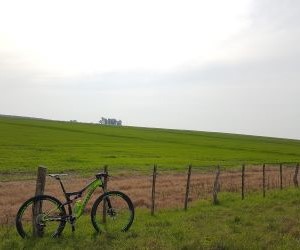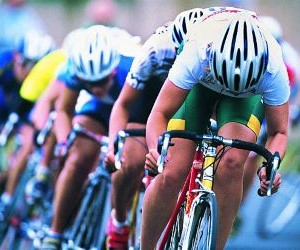Discover key indicators to spot potential breakaway winners during Giro d’Italia medium-mountain stages, enhancing race predictions.
HOW DO I CHOOSE BETWEEN CLIPLESS AND FLAT PEDALS?
Pedals may seem like a small detail, but the choice between clipless and flat systems shapes the entire riding experience. Clipless pedals offer efficiency and power transfer prized by road and cross-country riders, while flats deliver freedom, control, and confidence, especially for technical or casual riding. With so many factors—riding discipline, skill level, comfort, and even injury history—it’s not always obvious which to choose. This article explores the pros and cons of both systems, equipping you to make a confident, informed decision for your style of riding.

Efficiency and power transfer
One of the strongest arguments for clipless pedals is efficiency. By locking the shoe to the pedal, clipless systems enable a smoother pedal stroke, with power applied on both the downstroke and upstroke. This translates to better performance over long distances and demanding climbs.
Clipless for performance gains
Road cyclists and triathletes often favor clipless pedals for their improved biomechanics. Consistent foot positioning reduces wasted motion and maximizes energy transfer. For riders pushing for personal bests or race-day efficiency, clipless pedals are the gold standard.
Secure foot placement at all times
Better climbing efficiency
Reduced fatigue in long rides
Flats for versatility
Flat pedals don’t lock you in, but that doesn’t mean they lack efficiency. Advances in pedal and shoe design, such as sticky rubber soles and large pedal platforms, provide excellent grip. Flats allow instant foot repositioning, which can help maintain cadence and adapt to sudden terrain changes.
While clipless shines in sustained efforts, flats give riders flexibility and confidence, especially when technical skills or quick dismounts are part of the ride.
Control and safety
The pedal system you choose influences how connected you feel to the bike. For many, clipless pedals provide a locked-in sense of control, while others value the freedom of flat pedals in tricky conditions. Safety depends on context and rider skill level.
Clipless confidence and risks
Clipless pedals shine when stability is paramount, such as during sprints, climbs, or rough terrain where slipping off the pedals could cause crashes. However, the learning curve includes the infamous “clipless fall,” when riders forget to unclip at stops or sudden obstacles.
Superior bike handling at high speeds
Foot security in rough terrain
Risk of tipping if unclipping too late
Flat pedals for freedom
With flat pedals, riders can instantly put a foot down, making them ideal for beginners, urban riders, and mountain bikers tackling technical sections. They reduce the risk of being “trapped” during a fall. For learning bike handling skills, flats often provide a safer environment.
Grip is strong enough with modern pedal pins and sticky shoes that many downhill riders prefer flats, even in competition, because of the freedom to bail out when necessary.
Comfort and riding style
Comfort extends beyond performance—it’s about how the system feels during your type of riding. Both pedal types can be optimized with the right shoes and fit, but the choice should align with your cycling discipline and personal preference.
Clipless for structured training
If your cycling involves structured workouts, commuting long distances, or racing, clipless systems integrate seamlessly with performance footwear and cleat positioning. They promote consistent ergonomics, which can reduce knee strain over time when properly adjusted.
Flats for casual and technical riding
Flats are unmatched for casual rides, stop-and-go city traffic, and off-road adventures where frequent dismounts are necessary. They also allow you to wear regular shoes, adding convenience for commuting or multi-purpose use.
Convenient for commuting and errands
Ideal for learning bike skills
Comfortable for off-bike walking
Finding your balance
Ultimately, choosing between clipless and flat pedals depends on balancing performance goals with comfort and safety. Some riders even switch between systems depending on the ride: clipless for road training, flats for mountain adventures. Hybrid pedals that combine both options exist, offering flexibility for riders in transition.
Whichever you choose, investing time in setup—cleat alignment for clipless or shoe compatibility for flats—ensures comfort and reduces injury risk. Your pedal system should feel like an extension of your riding style, not a barrier.
YOU MAY ALSO BE INTERESTED








